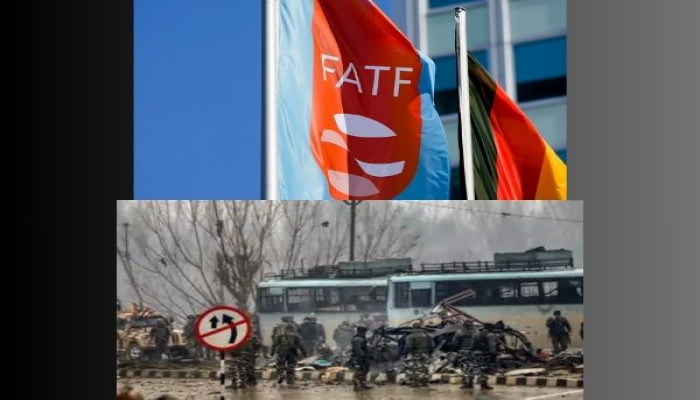FATF flags use of e-commerce and payments in terror financing, cites Pulwama and Gorkhnath temple attack
- In Reports
- 05:55 PM, Jul 09, 2025
- Myind Staff
The Financial Action Task Force has expressed concern about how terrorist groups are misusing e-commerce websites and online payment platforms, referring to cases in India such as the Pulwama attack in 2019 and the Gorakhnath Temple attack in 2022.
In its report titled Comprehensive Update on Terrorist Financing Risks, the FATF also pointed to support for terrorism from some governments, saying that “certain terrorist organisations have been and continue to receive financial and other forms of support from several national governments”, based on publicly available sources and inputs from member delegations.
“Delegations described this trend by pointing to the utilisation of state sponsorship of TF either as a fundraising method or as a component of the financial management strategy of the specific organisations carrying out terrorist activities. Various types of support have been cited, ranging from direct financial support, logistical and material support, to provision of training,” stated the FATF.
In June, while strongly condemning the Pahalgam terror attack of April 2025, which took the lives of 26 people, the FATF said such attacks would not be possible without funding. It had also announced that it would bring out a “comprehensive analysis of terrorist financing” using case studies collected from its network of 200 countries and territories.
Referring to one case from India, the FATF said that aluminium powder, a key part of the explosive device used in the attack, was bought through Amazon and was meant to increase the impact of the explosion.
The report also highlighted the Indian investigation into the 2019 Pulwama attack, which found that it had been planned by Jaish-e-Mohammed. Nineteen people were booked under the Unlawful Activities Prevention Act, including on charges related to terror financing. “Among those charged were seven foreign nationals, including the suicide bomber. LEAs also recovered movable and immovable assets connected to the attack, such as vehicles and terrorist hideouts,” it added.
The FATF once again said that “terror attacks need money to succeed” as it criticised the Pahalgam attack and pointed out weaknesses in how such operations are funded.
Indian officials have often stated that Pakistan continues to support terrorism and have accused it of using international funds to buy weapons. India has also said that Pakistan gives shelter to designated terrorists, and sources have said that India believes Pakistan should be added back to the FATF “grey list”.
The FATF also said that terrorist organisations are increasingly turning to online shopping sites and digital platforms to buy materials for their activities, including tools, weapons, chemicals and items needed for 3D printing.
“Terrorists exploited these platforms to sell merchandise for financing their projects and operations, including lower-value goods that were not previously in demand,” the report added. They can be utilised for value-moving schemes motivated by trade-based money laundering. Goods traded can actually provide camouflage for value moved from one accomplice to another member of the network. Such a scheme would see the initial actor buy goods, ship them to his accomplice via a platform, for the latter to sell in another jurisdiction and utilise the proceeds towards financing terrorism.
In another case, dated April 3, 2022, the FATF referred to the attempted attack at Gorakhnath Temple, where a man inspired by the Islamic State in Iraq and the Levant ideology attacked security forces before being arrested.
The financial probe found that the attacker had sent ₹669841 or USD 7685 through PayPal to foreign countries to support ISIL and had used international third-party services and VPNs to hide his IP address. He had also received ₹10323.35 or USD 188 from a foreign source.
Further investigation revealed that he had paid for the VPN using his bank account. A full check of his PayPal account, which was linked to his email, showed he had made around 44 international third-party transactions worth ₹669841 or USD 7736. He had also received funds from a foreign PayPal account.
“Given the suspicious nature of these transactions and the risk of TF, the account of the accused was frozen by PayPal, thus precluding further illegal transfers of funds,” the FATF added, citing an example given by India's Ministry of Finance.
The report further said, “As the offer of online payment services from Fintech companies grew substantially over the last 10 years, cases of terrorists opting for those services can be observed across all contexts, especially as it offers an opportunity to diversify fund-moving channels. These payment schemes also seem appealing to terrorist groups for their cheap and speedy money transfer options, with the potential for increased secrecy on initiators and receivers via pseudonyms or false accounts.”







Comments